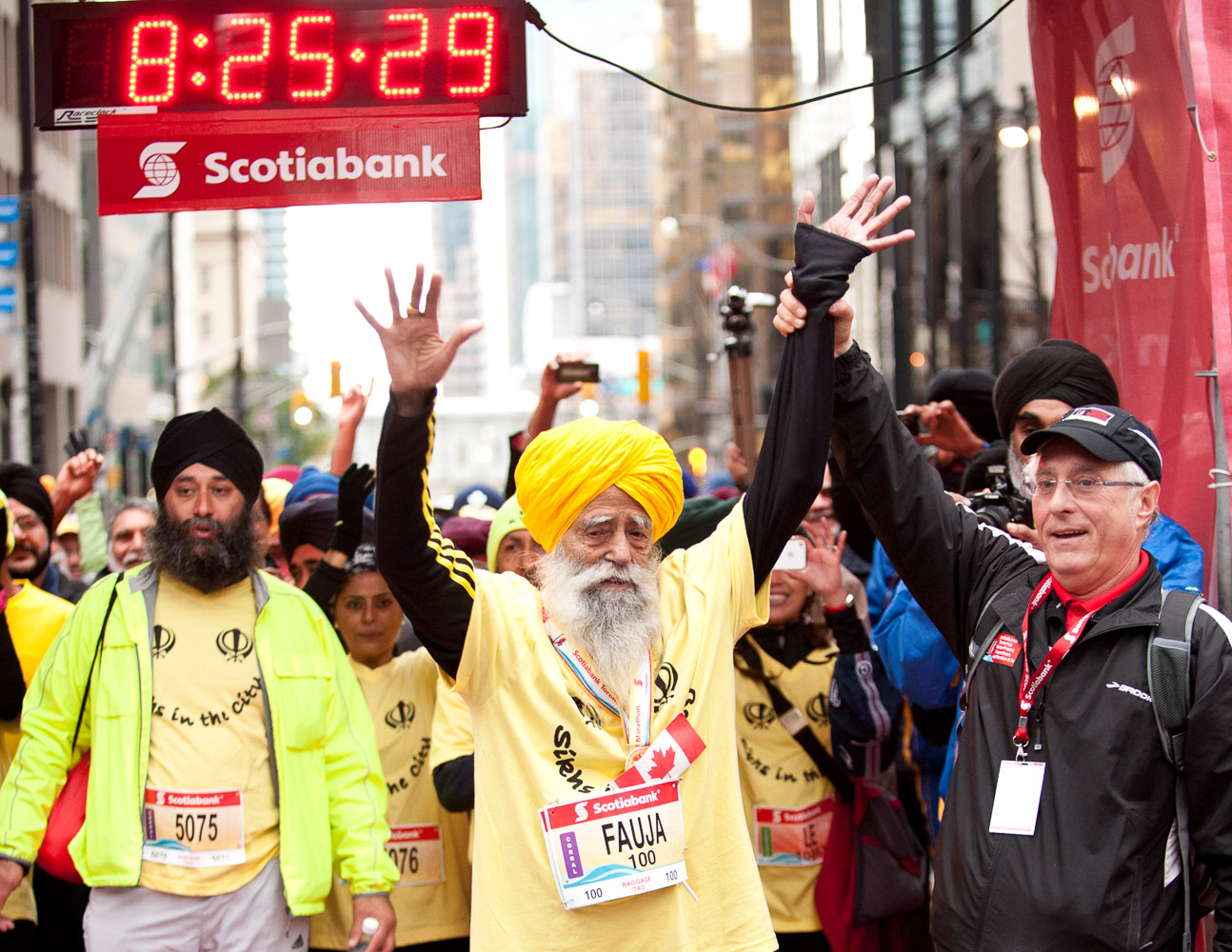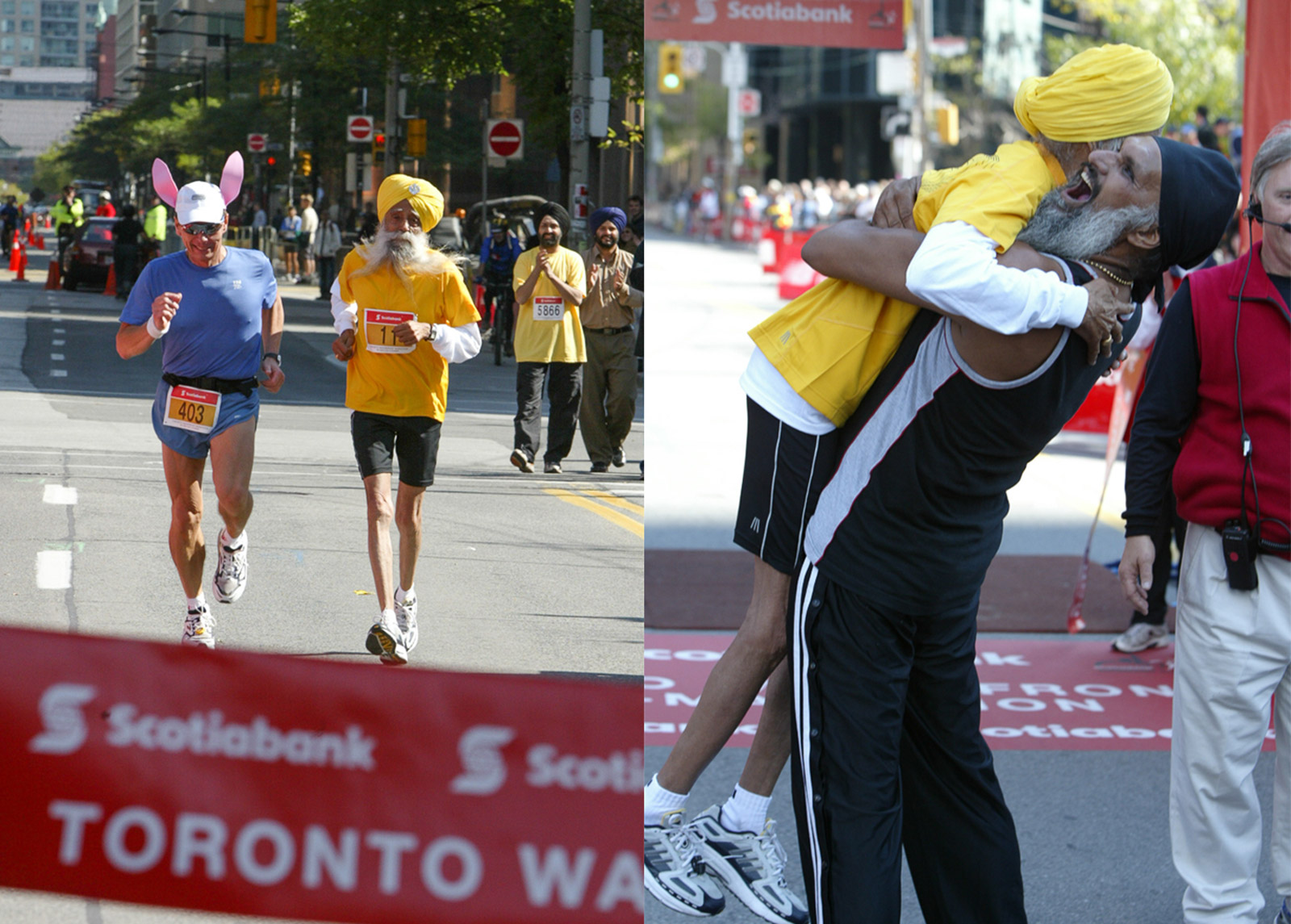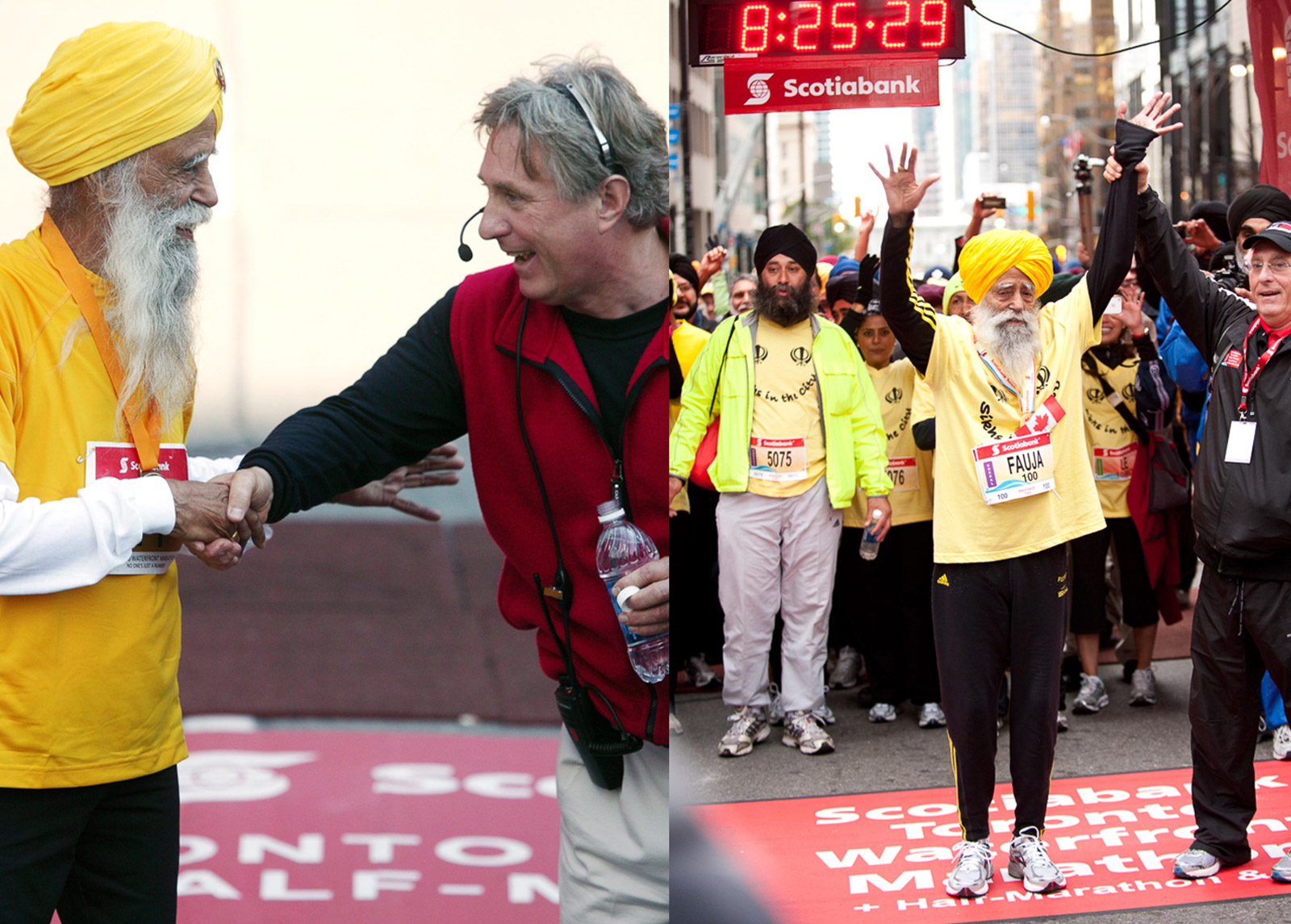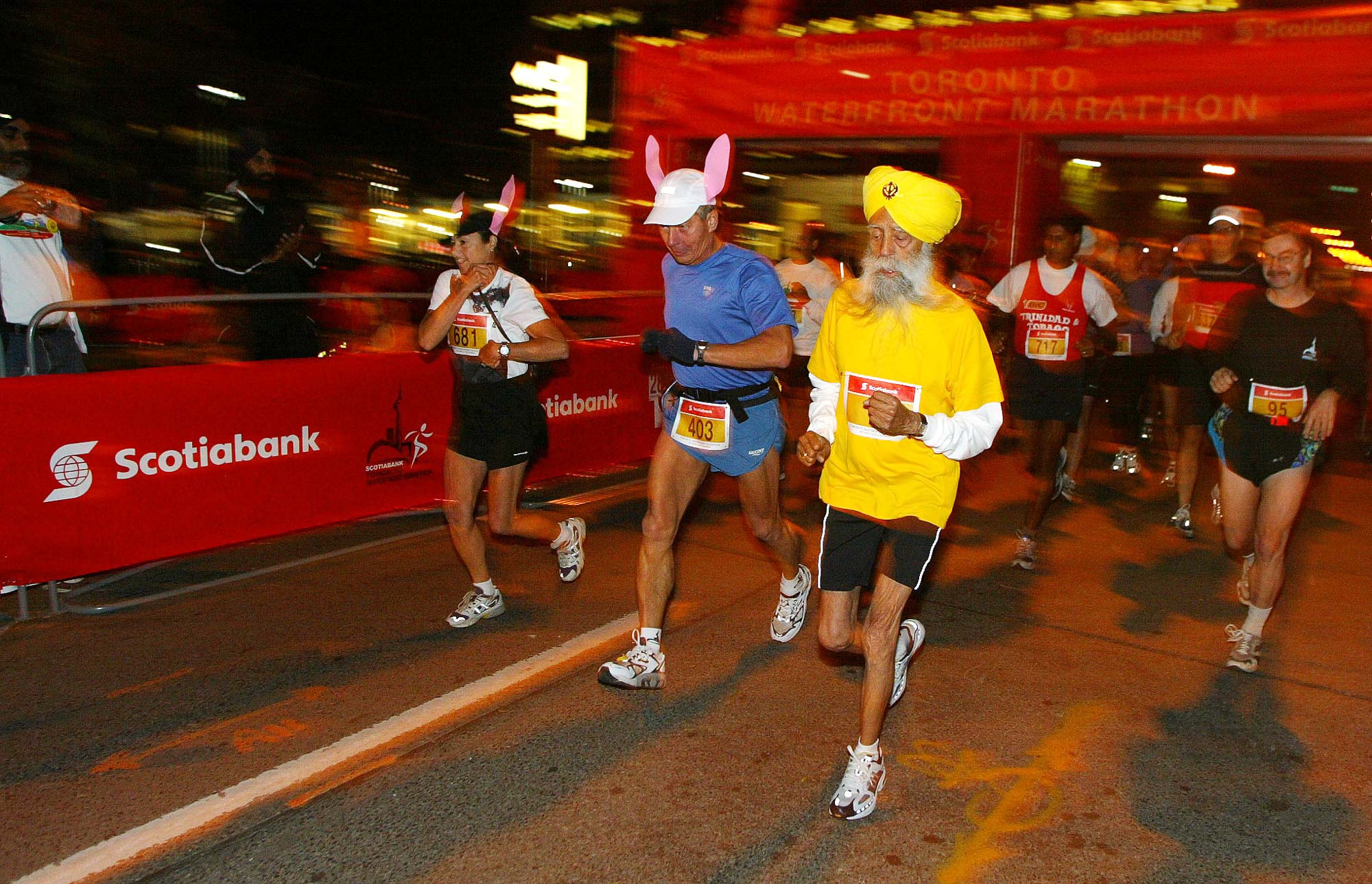
By Ravi Singh
One day, a bearded figure with origins in a small rural town no one ever heard of and who was witness to an astonishing amount of history—two world wars, the partitioning of India, the invention of television and the iPhone, the fall of the Berlin Wall, and more—decided, for no particular reason, to go for a little run.
“At 89 years, he took seriously to running and ended up in international marathon events,” is one of the many excerpts of Fauja Singh’s Wikipedia page that manage to be astonishing, hilarious, delightful, absurd, and inspiring. Like any biography befitting a proper legend, Fauja’s life has come to read as a blend of truthful elements, life lessons, perhaps a little embellishment, and tales of extreme adversity leading to unlikely triumph.
 The oldest man to ever finish a marathon at 101, supposedly didn’t walk until he was five. Running through every story about the man they called the Turbaned Tornado, however, is an unquestioned reverence for what he achieved, the impact he made, and the people he inspired.
The oldest man to ever finish a marathon at 101, supposedly didn’t walk until he was five. Running through every story about the man they called the Turbaned Tornado, however, is an unquestioned reverence for what he achieved, the impact he made, and the people he inspired.
The adventure was triggered when Fauja met Harmander Singh, President of the Sikhs in the City Running Club, himself a marathoner 160 times over, met Fauja. The latter had moved to the UK in 1994 to stay with his son after another one of his children passed, leaving him with no close relations in his homeland of India.
Accordng to Harmander, “his simple outlook on life and respect for all based on his religious values of remembering God, working honestly, and sharing with others” resonated with everyone from youth, fellow runners, and even the Queen, who included Fauja as part of the 2015 New Year Honours List.
“Fauja Singh was introduced to me by Sukhjeevan Singh, a local businessman, in 1999,” Harmander recalls. Fauja was hoping to enter the London Marathon, but had missed the cutoff date. Harmander had previously run London in support of the Harefield Heart Transplant Trust on behalf of Sukhjeevan, whose son was awaiting a heart transplant. Harmander had subsequently trained Sukhjeevan to run the London Marathon on his own, so the latter figured that Harmander could find Fauja a bib and train him in the 12 weeks remaining before the race.
In 2003, race director Alan Brookes invited Fauja to the Scotiabank Toronto Waterfront Marathon. He’d come back again in 2011 to celebrate his 100th birthday. Though Guinness never verified his record because of an absent birth certificate, his time of eight hours made him the oldest marathon finisher in history.
 After 42 kilometers, Fauja still had the energy to entertain admirers and leave a legacy in the city. Harmander explains that the race “…was the trigger for many health conscious initiatives such as the ‘Inspirational Steps’ program organised by the Toronto based Guru Gobind Singh Children’s Foundation, which has evolved into an annual series of different distance races attracting over 500 participants from the South Asian communities.”
After 42 kilometers, Fauja still had the energy to entertain admirers and leave a legacy in the city. Harmander explains that the race “…was the trigger for many health conscious initiatives such as the ‘Inspirational Steps’ program organised by the Toronto based Guru Gobind Singh Children’s Foundation, which has evolved into an annual series of different distance races attracting over 500 participants from the South Asian communities.”
Now, past his 108th birthday, Fauja continues to move, though his comparatively sedate routine covers about six miles of walking every day. According to Harmander, “He is coping well with the onset of nature on his body and is reluctant to let people down who wish him to attend their functions.”
“Fauja has always said he loves the attention in a respectable way and feels he must be doing good if his actions or presence inspires people to become more active and positive about themselves,” Harmander says.
The marathon is meant to humble us and show us a world beyond ourselves. Fauja, humble as he is, might be one of a very few runners whose life and personality make the marathon seem small.







